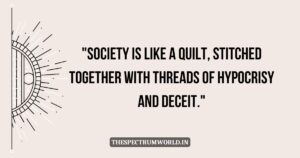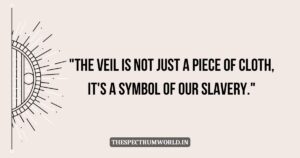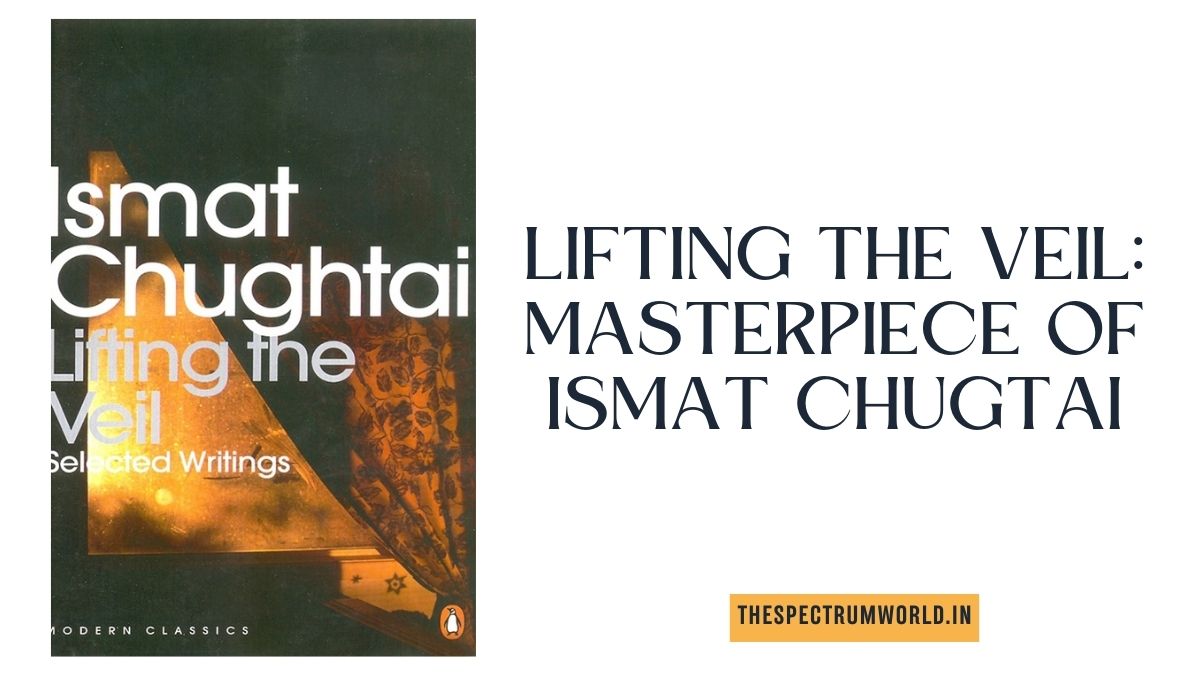Lifting the Veil: Masterpiece of Ismat Chugtai
“Lifting the Veil” is a seminal work of Urdu literature, comprising a collection of short stories that delve into the lives of women in a patriarchal society. Written by Ismat Chughtai, a pioneering female writer, this book was first published in 1941 and has since become a classic of Indian literature.
Table of Contents

Themes
The stories in “Lifting the Veil” explore themes that were revolutionary for their time, including:
- Women’s desires and sexuality: Chughtai fearlessly explores women’s desires, sexual longings, and the constraints placed upon them.
- Identity and autonomy: Her characters struggle to assert their individuality within the confines of societal expectations.
- Family and relationships: Chughtai examines the complex web of relationships within families, revealing the tensions and dynamics that shape women’s lives.
- Social expectations and norms: She challenges societal conventions, questioning the status quo and advocating for change.
Storytelling and style
Chughtai’s writing is characterized by:
- Evocative prose: Her descriptions are vivid and immersive, drawing readers into the world of her characters.
- Insightful characterization: Her characters are multidimensional and relatable, with rich inner lives.
- Subtle humor and irony: Chughtai uses humor and irony to highlight the absurdities and contradictions of societal norms.

“Lifting the Veil” by Ismat Chughtai contains the following short stories:
- “The Quilt” (Lihaaf)
- “The Quilt’s Companion” (Lihaaf ke Saath)
- “The Quilt’s Other Side” (Lihaaf ki Doosri Taraf)
- “The Homecoming” (Ghar ka Jogi)
- “The Wedding” (Shaadi)
- “The Widow” (Randi)
- “The Mother” (Maa)
- “The Daughter” (Beti)
- “The Sister” (Behn)
- “The Friend” (Saheli)
- “The Lover” (Ashiq)
- “The Husband” (Khawand)
- “The Mother-in-law” (Sas)
- “The Daughter-in-law” (Bahu)
- “The Sister-in-law” (Nanad)
Note: Some editions of the book may have a different collection of stories or varying translations of the titles.
“The Quilt” (Lihaaf) is one of Chughtai’s most famous stories, and it has been widely anthologized and studied. It explores themes of same-sex desire, identity, and societal expectations.

Interesting quotes from “Lifting the Veil” by Ismat Chughtai:
- “The veil is not just a piece of cloth, it’s a symbol of our slavery.” – From “The Quilt” (Lihaaf)
- “I am not a woman, I am a human being. And I will not be bound by the chains of society.” – From “The Homecoming” (Ghar ka Jogi)
- “Marriage is not a sacrament, it’s a social contract. And I will not be a party to it.” – From “The Wedding” (Shaadi)
- “A woman’s body is not her own, it’s a battlefield for men to fight their wars.” – From “The Widow” (Randi)
- “Motherhood is not just a biological phenomenon, it’s a social construct. And I will not be a part of it.” – From “The Mother” (Maa)
- “Society is like a quilt, stitched together with threads of hypocrisy and deceit.” – From “The Quilt” (Lihaaf)
- “I would rather die than live a life of lies and compromises.” – From “The Daughter” (Beti)
- “The only way to break free from societal shackles is to challenge them head-on.” – From “The Sister” (Behn)
- “Love is not just a feeling, it’s a revolutionary act.” – From “The Lover” (Ashiq)
- “The most powerful weapon in the world is a woman’s voice. And I will not be silenced.” – From “The Friend” (Saheli)
Note: These quotes are translations and may vary depending on the edition and translation of the book.
Impact and significance
“Lifting the Veil” has had a profound impact on Indian literature and society,:
- Pioneering feminist voice: Chughtai was one of the first women writers to give voice to feminist concerns in Urdu literature.
- Challenging societal norms: Her work challenged societal conventions, paving the way for future generations of writers and activists.
- Timeless relevance: Despite being written over 80 years ago, the themes and concerns of “Lifting the Veil” remain remarkably relevant today.

Conclusion
“Lifting the Veil” is a masterpiece of Urdu literature, offering a powerful and poignant portrayal of women’s lives. Chughtai’s fearless exploration of themes, combined with her evocative storytelling and insightful characterization, make this book a must-read for anyone interested in Indian literature, women’s studies, or great storytelling.
Read more: A Timeless Tale: The Great Gatsby







One thought on “Lifting the Veil: Masterpiece of Ismat Chugtai”